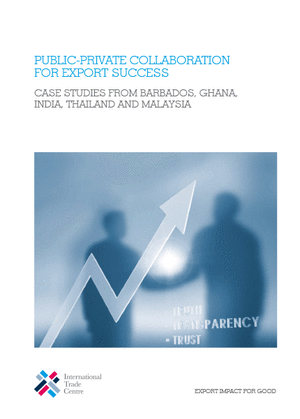Colaboración Público-Privada para el Éxito de las Exportaciones: Estudios de caso de Barbados, Ghana, India, Tailandia y Malasia
Recopilación de estudios de casos dirigida a los dirigentes de empresas, los responsables de la formulación de políticas y a los profesionales del desarrollo, en la que se muestran experiencias exitosas del diálogo entre los sectores público y privado en países en desarrollo.Se ponen de...






